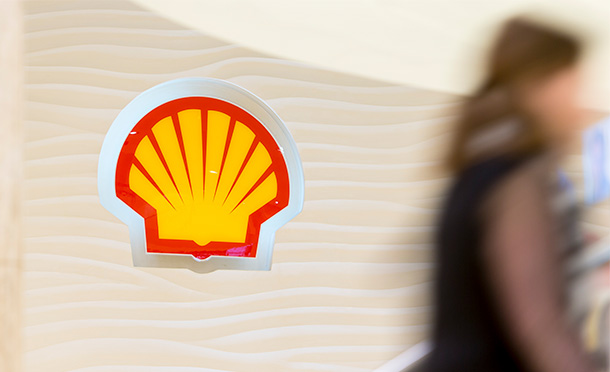Corporate
|
|
|
$ million |
||||
|---|---|---|---|---|---|---|---|
|
2021 |
2020 |
2019 |
||||
Segment earnings |
(2,606) |
(2,952) |
(3,273) |
||||
Comprising: |
|
|
|
||||
Net interest [A] |
(2,701) |
(2,991) |
(3,080) |
||||
Taxation and other [B] |
96 |
39 |
(194) |
||||
Identified Items |
81 |
460 |
109 |
||||
Adjusted Earnings |
(2,686) |
(3,412) |
(3,383) |
||||
|
|||||||
Overview
The Corporate segment covers the non-operating activities supporting Shell. It comprises Shell’s holdings and treasury organisation, self-insurance activities and headquarters and central functions. All finance expense and income and related taxes are included in Corporate segment earnings rather than in the earnings of business segments.
The holdings and treasury organisation manages many of the Corporate entities. It is the point of contact between Shell and external capital markets, conducting a wide range of transactions, such as raising debt instruments and transacting foreign exchange. Treasury centres in London and Singapore support these activities.
Headquarters and central functions provide business support in communications, finance, health, human resources, information technology (IT), legal services, real estate and security. They also provide support for shareholder-related activities. The central functions are supported by business service centres, which process transactions, manage data and produce statutory returns, among other services. Most headquarters and central-function costs are recovered from the business segments. Costs that are not recovered are retained in Corporate.
Earnings 2021-2020
Segment earnings in 2021 were an expense of $2,606 million, compared with $2,952 million in 2020.
Net interest decreased by $289 million in 2021 compared with 2020. This was primarily due to a decrease in interest expense following debt repayments and a reduction in interest expense on lease liabilities, partly offset by a reduction in interest income generated on cash balances.
Taxation and other earnings increased by $58 million in 2021, compared with 2020. This largely reflected a foreign exchange gain arising from favourable exchange rate movements and lower financing expenses from joint ventures and associates, partly offset by unfavourable deferred tax impacts due to the weakening Brazilian real on financing positions.
Prior year earnings summary
Our earnings summary for the financial year ended December 31, 2020, compared with the financial year ended December 31, 2019, can be found in the Annual Report and Accounts and Form 20-F (page 60) for the year ended December 31, 2020, as filed with the Registrar of Companies for England and Wales and the US Securities and Exchange Commission, respectively.
Self-insurance
We mainly self-insure our hazard risk exposures. Our Group insurance companies are adequately capitalised to meet self-insurance obligations and respective regulations, though they may transfer risks to third-party insurers where economical, effective and relevant (see “Risk factors”). We continually assess the safety performance of our operations and make risk mitigation recommendations, where relevant, to minimise the risk of an accident.
Information technology and cyber security
Given our digitalisation efforts and increasing reliance on information technology (IT) systems for our operations, we continually monitor external developments and actively share information on threats and security incidents. Shell employees and contract staff are subject to mandatory courses and regular awareness campaigns aimed at protecting us against cyber threats. We periodically test and adapt cyber-security response processes and seek to enhance our security monitoring capability.
Given our dependence on IT systems for our operations and the increasing role of digital technologies across our organisation, we are aware that cyber-security attacks could cause significant harm to Shell in the form of loss of productivity, loss of intellectual property, regulatory fines and reputational damage. As a result, we continuously measure and, where required, further improve our cyber-security capabilities to reduce the likelihood of successful cyber attacks. Our cyber-security capabilities are embedded into our IT systems, which are protected by various detective and protective technologies. The identification and assessment capabilities are built into our support processes and adhere to industry best practices. The security of IT services, operated by external IT companies, is managed through contractual clauses and additionally through formal supplier assurance reports for critical IT services.
Shell is frequently subjected to cyber attacks and since the COVID-19 pandemic in 2020, we have noticed an increase in such activity. COVID-19 necessitated a switch from office to remote working, which changed and increased the IT systems’ exposure to cyber threats. Shell’s CyberDefence team responded by enhancing cyber-security controls for remote connectivity, strengthening its monitoring and detection, and taking additional measures to improve cyber awareness.
See “Risk factors”.
Brand value
In January 2022, Shell’s brand value was estimated at $49.9 billion in Brand Finance Global 500 2022, the annual report by leading brand valuation consultancy Brand Finance. This was up 18% compared with 2021, and up 36% compared with 2017. According to the valuation, the Shell brand remains the most valued in the oil and gas industry. The gap to second place widened from $4.7 billion in 2021 to $6.3 billion in 2022. The report also showed that Shell’s brand rating is AAA- in 2022, which is reduced from AAA in 2021.









